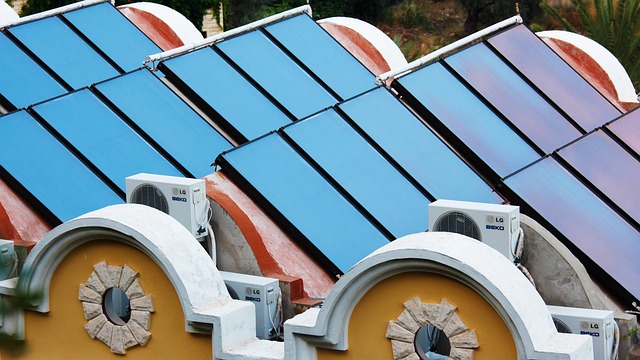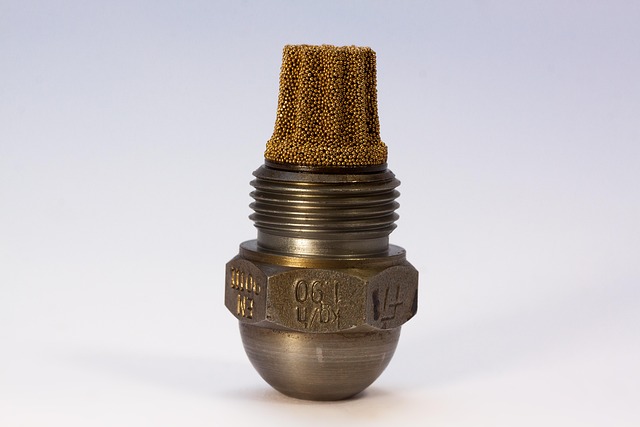Electric boilers are a quiet, energy-efficient solution for noise-sensitive environments, offering significant advantages over traditional gas boilers. With advanced noise reduction technology and variable power outputs, these boilers minimize ambient noise while providing precise temperature control and reducing carbon footprints. Proper installation, regular maintenance, and smart controls contribute to optimal performance and long-term cost savings in residential and commercial settings.
In noise-sensitive environments, such as hospitals, schools, or urban apartments, finding quiet solutions is essential. This is where electric boilers step in as a subtle yet powerful alternative to traditional models. This article explores why quiet electric boilers are ideal for these settings, delving into their noise reduction capabilities and the key features that make them stand out. We’ll also guide you through installation and maintenance, ensuring a smooth transition to a quieter heating system.
- Understanding Noise Levels in Sensitive Environments
- The Advantages of Quiet Electric Boilers
- Key Features to Look for in a Noise-Reducing Boiler
- Installation and Maintenance Considerations for Silent Boilers
Understanding Noise Levels in Sensitive Environments

In noise-sensitive environments like hospitals, schools, and residential areas, understanding and managing sound levels is paramount. Electric boilers, known for their quiet operation compared to traditional gas boilers, play a crucial role in minimizing ambient noise. The absence of noisy combustion processes makes electric heating systems ideal for such settings.
Residential electric boilers, for instance, offer energy-efficient heating solutions with significantly lower noise outputs. This is particularly beneficial for homeowners seeking clean heating systems that won’t disrupt neighbors or disturb peaceful living spaces. Electric space heating technologies continuously evolve, providing quieter and more efficient options for both residential and commercial applications, including electric HVAC systems and boiler systems.
The Advantages of Quiet Electric Boilers

Quiet electric boilers are a game-changer for those seeking a peaceful environment. They offer numerous advantages over traditional boiler systems, making them ideal for residential and noise-sensitive settings. One of the key benefits is their operational silence; these boilers quietly heat your space, eliminating the constant hum or banging often associated with older heating systems. This makes them perfect for homes, offices, or any area where a calm atmosphere is preferred.
Additionally, electric boilers are known for their energy efficiency and clean operation. Electric heating technology ensures precise temperature control, allowing for customizable comfort. They also contribute to reduced carbon footprints due to their reliance on electricity from renewable sources. Whether you’re looking for an upgrade to your residential electric boilers or seeking a more efficient electric central heating system, quiet electric boilers provide a superior alternative that caters to modern lifestyle needs and environmental considerations.
Key Features to Look for in a Noise-Reducing Boiler

When selecting a quiet electric boiler for noise-sensitive environments, several key features stand out. First and foremost, look for models with advanced noise reduction technology. This often includes insulated casings, optimized fan designs, and silent combustion processes that significantly minimize operational sounds. Additionally, consider electric heating systems that offer variable power outputs, allowing you to set lower heat levels during quieter times, further reducing overall noise levels.
Other important aspects include energy efficiency, as modern residential electric boilers with smart controls can optimize heating output, leading to reduced energy consumption and less noise generated. Moreover, opting for clean heating systems like electric space heating solutions can contribute to a healthier indoor environment by eliminating the need for noisy and potentially harmful gas combustion processes, often found in traditional boiler systems and electric HVAC systems.
Installation and Maintenance Considerations for Silent Boilers

When installing a quiet electric boiler, it’s crucial to consider the specific requirements of noise-sensitive environments. Unlike traditional gas boilers, electric heating systems operate silently, making them ideal for residential areas, hospitals, schools, and other spaces where peace and tranquility are paramount. During installation, ensure proper insulation and routing of pipes to minimize any potential sound transmission. Electric central heating systems are known for their clean heating technology, offering a more pleasant indoor environment.
Regular maintenance is also essential for keeping your electric boiler running smoothly and quietly. Since electric space heating systems have fewer moving parts compared to gas boilers, they generally require less frequent service but still demand routine attention. Cleaning or replacing air filters, inspecting electrical connections, and ensuring adequate ventilation are key maintenance practices for optimal performance and noise reduction. Energy-efficient heating solutions like residential electric boilers not only contribute to a quieter atmosphere but also provide long-term cost savings through reduced energy consumption.
For those seeking a peaceful haven, especially in noise-sensitive areas like hospitals, schools, or urban apartments, quiet electric boilers offer a serene solution. By prioritizing user comfort and environmental harmony, these boilers provide an efficient heating system without the typical rumble. With their advanced design and key features focusing on noise reduction, electric boilers ensure a tranquil atmosphere while maintaining optimal temperature control. When considering installation and proper maintenance, these boilers prove to be a practical and peaceful choice for any setting.






